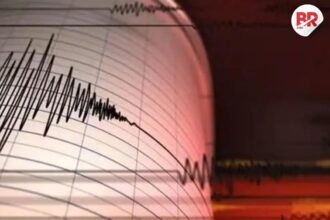
Trump’s Tariffs Could Spark US Recession, Warns JPMorgan CEO
Former President Donald Trump’s proposed tariff hikes could push the US closer to a recession, warned JPMorgan Chase CEO Jamie Dimon. As Trump doubles down on protectionist trade policies, fears are rising across Wall Street and Capitol Hill.
Dimon, one of the most influential voices in global finance, cautioned that sweeping tariffs could fuel inflation, slow growth, and destabilize markets. “We’re looking at a scenario where stagflation becomes a real possibility,” he said, referring to the dangerous combination of high inflation and sluggish economic output.

Dimon’s warning comes at a time when market valuations remain high and global uncertainty is on the rise. His concerns echo those of billionaire investor Bill Ackman, who recently criticized the US for losing credibility as a trustworthy trade partner.
Global Markets Rattled
Trump’s previous tariff escalations led to massive global sell-offs, wiping out trillions in market value. With the former president now pushing for a 50% tariff on Chinese imports, total duties have surged to 84%, igniting further tensions with Beijing.
China hit back with retaliatory tariffs of 34%, sending a clear message that trade wars come with steep costs. This tit-for-tat battle threatens to slow global trade and increase costs for American consumers and businesses alike.
Also Read: Trade Wars + Recession = Oil Crash? Goldman Warns Market Shift
A Smarter Strategy? Dimon’s Global Trade Vision
Instead of isolation, Dimon is urging the US to rethink its trade approach. He recommends forming stronger partnerships with non-aligned nations such as India and Brazil, rather than imposing heavy tariffs and demanding political allegiance.
Currently, the US imposes 26% tariffs on Indian imports and 10% on Brazilian goods—moves that Dimon sees as short-sighted. “We don’t need to ask them to align with us—just extend a friendly hand with trade and investment,” he said.
This strategy would allow the US to expand its economic influence without pushing countries into uncomfortable political corners. It also helps reduce dependency on volatile trade relations with China.
Also Read: ‘Blackmail’: China Vows to Hit Back as Trump Threatens 50% Tariff Bomb
Political Fallout Looms for GOP
Even within the Republican Party, Trump’s aggressive trade stance is facing backlash. Senator Ted Cruz warned that an economic downturn before the 2026 elections could result in a political “bloodbath” for the GOP.
With inflation still a major concern and public anxiety growing over the cost of living, Cruz’s warning reflects broader worries that Trump’s policies may backfire—economically and electorally.
What’s Next for America’s Trade Future?
The US stands at a crossroads. One path leads to escalating trade wars, higher prices, and economic risk. The other offers a chance to build alliances, ease global tensions, and promote mutual growth.
If Jamie Dimon’s words are heeded, the US may choose diplomacy and partnership over conflict and confrontation.
Also Read: 35,000 Jobs at Risk: US Tariffs Squeeze South Africa’s Citrus Lifeline












